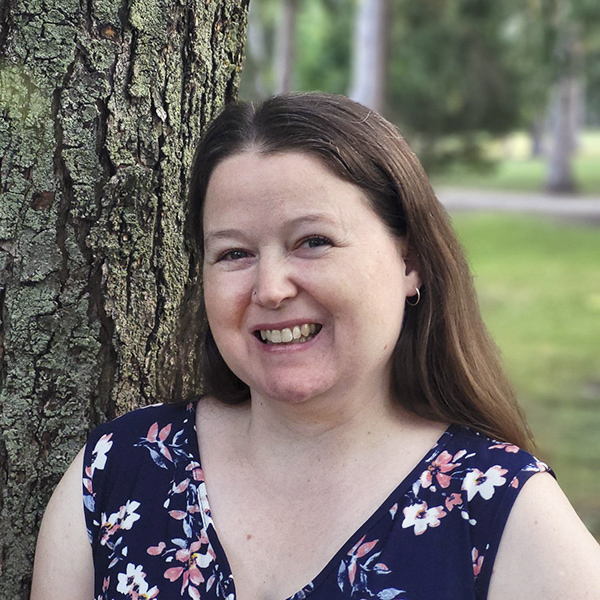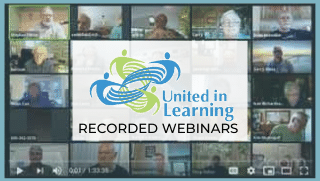
Congregational Support
Quick links to sections on this page:
Archives | Church Hub | Collaboration |Disbanding and Amalgamation | Governance | Property | Maps | Staff
Let’s Connect Lay Leaders Webinar
Governance and Living Faith Stories
Follow Up from June 19 Webinar
This was a joint webinar with Canadian Shield and Shining Waters lay leaders held on June 19, 2024 (1:04:45)
Leaders: Governance Task Group of Shining Waters Regional Council’s Communities of Faith Commission
Many churches are facing stagnation from a lack of volunteers, overworked staff, and lack of vision or mission. There are outdated board structure that require more volunteers than some churches have members, ministers and office administrators end up taking on more work, and no-one’s quite sure where the community is going.
If this sounds like your church, we recommend watching this workshop on Governance Structures and Living Faith Stories. Eun-Joo Park will lead us through a review of different governance structures used in the United Church, and Tom MacNeil will refresh us on what a Living Faith Story is and why it’s vital that churches have one (don’t worry, they don’t take much to start).
Time, Talent and Treasure Gatherings
Tips, Tricks, and Best Practices to Steward Our Resources Wisely
Follow Up from February 2023 Forum
Time, Talent and Treasure: When It Feels Like Your Community of Faith Doesn’t Have Enough
Recording of the Gathering on February 7, 2023 (1:24:15)
All are welcome to this Canadian Shield and Shining Waters regional event exploring how to meet the challenge of being church today with courage, deep faith and practical tools! Join Melody Duncanson-Hales, Community of Faith Stewardship Support Minister and Diane Matheson-Jimenez, Community of Faith Support Minister, and several guest speakers for an evening of discussion and exploration.
Stewardship Links
Scenario Budgeting: https://www.propelnonprofits.org/
search: “Scenario Planning” There are templates, a webinar, and more info.
Regional Grants:
(Canadian Shield) https://canadianshieldrc.ca/communities-of-faith/grants-and-funding/
(Shining Waters) https://shiningwatersregionalcouncil.ca/communities-of-faith/grants-and-funding/
United Church Foundation: https://www.unitedchurchfoundation.ca/grants/
United Church Capital Assistance: https://united-church.ca/leadership/church-administration/local-administration/capital-assistance-programs
United Church Insurance: https://united-church.ca/leadership/church-administration/local-administration/group-insurance/ucc-protect
Faithful Footprints: https://www.faithfulfootprints.org/
Secular and Government Grants Trillium Foundation: https://www.otf.ca/
New Horizons: https://www.canada.ca/en/employment-social-development/programs/new-horizons-seniors.html
The Community Services Recovery Fund: https://communityservicesrecoveryfund.ca/
Called to be the Church: the Journey https://united-church.ca/community-and-faith/get-involved/called-to-be-the-church
Book time for support: https://outlook.office365.com/owa/calendar/StewardshipSupport@united-church.ca/bookings/
(click on Melody’s name!)
Leadership Links
Want to engage people in the work of your governing body? Allow them to do the work that really matters! (Hint: the work that really matters isn’t receiving reports…)
https://www.congregationalconsulting.org/the-boards-job-in-times-of-rapid-change/?fbclid=IwAR2DxmmPHKFBeutvQGrQCre9oxno9RnbJTGYie9yKPAkDKiXpose3GqOSak
What kind of church should you aspire to be? Exactly the one you are!
https://www.facebook.com/photo/?fbid=724717729016959&set=pb.100044362152366.-2207520000.
Need some help with visioning, property management, collaboration, use of space, and rental opportunities? Check out the work of TUCC:
https://www.tucc.ca/
Wondering about development opportunities? Check out the work of Kindred Works/UPRC
https://www.kindredworks.ca/
Connect with your staff team:
CSRC – https://canadianshieldrc.ca/about/staff/
SWRC – https://shiningwatersregionalcouncil.ca/about/about-us/staff/
Tips and Tricks to Manage a Projected Deficit
*Stewardship, stewardship, stewardship!
*Make it easy for people to give: Canada Helps, donation button on website, credit/debit terminal available during worship, promote PAR, set up etransfer
*Survey your assets and leverage them… Do you have property that can be redeveloped? Rented? Do you have regular worship or pastoral care or Bible study or ?? that you can trade with a neighbouring community of faith for something you need?
*Review your service contracts: does the provider have a non-profit rate? Can you negotiate a better deal? Can you use volunteers to reduce the amount of outsourcing needed?
*Spend money to make money: a little spent on marketing can pay dividends in exposure! Can you outsource work to alleviate pressure on volunteers?
*Connect with your neighbours: think beyond your geography! With whom do you share a common vision? Where is there need you can meet? What needs do you have that neighbours might meet?
Archives
Good management of records is outlined in section A.5 of The Manual which states that “church records have a historical and legal value,” which necessitates that they be “accurate and complete” and “[kept] … safe [and] secure.” It also states that ownership of the “records belongs to the United Church. They may not be taken or kept by any member, minister or other person…” Moreover, congregations have a responsibility to deposit records no longer in use to the appropriate Regional Councils Archives. (See Section A.5 of The Manual, 2024 / Le Manuel, 2022)
Church Hub
ChurchHub is the new national database for information for every community of faith and all ministry personnel in The United Church of Canada. ChurchHub is part of a significant shift in the life of our church and how we live out our call to ministry and discipleship. It is both a policy that was passed by the General Council to be “regularized as the required process for ministry personnel and communities of faith to search for calls and appointments” and the support structure for communication between the denomination, ministry personnel, communities of faith and members who participate in regional and denominational ministry.
ChurchHub requires a login using a unique e-mail for each account to keep your data safe. We recommend community of faith administrators use an organizational address if possible, such as office[@]firstunited.on.ca or info[@]trinityunited.net, and others use their personal email.
FOR TECHNICAL ASSISTANCE WITH CHURCH HUB CONTACT ministry@united-church.ca
Statistics and Assessment Tools Added in 2021
- The annual blue statistical forms: Revamped with new, more helpful features and feedback options.
- The annual assessment invoices have been added and will be updated regularly.
- Officer and lead Roles can now be updated anytime throughout the year when there are changes.
- Communities of faith will receive additional logins sent to their charge treasurers.
- More roles will be added soon!

Collaborative Ministry
United Church Shared Ministry
Opportunities for shared ministry may present themselves when communities of faith are experiencing declining membership, resources, and financial instability. As communities of faith meet, new ways are suggested for redefining, exploring, and producing positive growth. The key question is: what are the opportunities for cooperation, even as each community of faith continues to develop as a distinct congregation? As communities of faith come together to begin exploring the possibility of sharing ministry personnel, the beginning stages of a Collaboration Agreement may be developed. It may become evident that common issues and challenges suggest there is much to be gained from increased collaboration.
Ecumenical Shared Ministry
An ecumenical shared ministry is people worshipping and serving God in a unified way while still maintaining their denominational identity and connections. It is any combination of denominations sharing a program, mission, ministry, or building. Ecumenical shared ministries take many forms. Faith communities who are looking for fellowship and want to worship together in a caring, welcoming Christian church might consider an ecumenical sharing arrangement.
Disbanding and Amalgamation
A congregation may experience one or more of the following changes during its lifetime:
a) amalgamating with one or more other communities of faith;
b) becoming a single-point pastoral charge, part of a multi-point pastoral charge,
or part of a different multi-point pastoral charge;
c) relocating; and
d) concluding its ministry.
All of these changes require the approval of the regional council and a change to
the covenant between the congregation and the regional council.
(The Manual, 2024 / Le Manuel, 2022 – G.1.3)
Governance
Governance: Conversations with Community Leaders
Governance: Conversations with Community LeadersPDF 40 pages | This resource is a set of slides, divided in four sections: In a Nutshell; Questions for Conversation: Quotes for Reflection: Best Practices. This material is not designed as a continuous presentation, instead it is intended as a resource to engage community leaders in conversations about governance with the aim of making improvements. Use it as a part of a dedicated workshop on governance. Or individual slides can be used in the course of ongoing meetings as an opportunity to stop and reflect on your own situation.
Meeting During COVID 19
Congregations hold meetings to receive information and make decisions. With current provincial restrictions on gatherings of people, the best course of action may be to defer any meetings already scheduled and those not yet called, including the annual general meeting.
If you decide to proceed with a meeting, any electronic method is acceptable as long as the participants have the ability to communicate with each other orally or through typed messaging at the same time. As long as most members have and can use the needed technology, it is a reasonable choice to proceed with a meeting. The congregation must be given advance notice of a congregational meeting, read aloud during public worship. Please see the document linked on the Governance in Congregations During COVID -19 website of The United Church of Canada for more information about meeting requirements.
United in Learning Webinars
Previously recorded webinars on Covid Response
Property
Property
All property of Communities of Faith are held by its Board of Trustees. This includes land, buildings, funds and investments and any other kind of property. The Trustees must comply with the United Church of Canada’s requirements for Boards of Trustees in matters related to communities of faith property. The Region is responsible for making decisions on requests from communities of faith in buying, selling, leasing, and renovating community of faith property and developing a plan to distribute any proceeds within denominational policies and guidelines. See the Communities of Faith Commission property policies for information regarding property transactions.
Maps
Mapping Shining Waters Regional Council
View the MapThese maps, created in partnership with Edge, combine information from The United Church of Canada Yearbook and Statistics Canada.
Watch our short video that explains how to use the map. [ 3:03 minutes ]
How to View the Map
- Link to the map
- Activate the layers of the map in the bottom right hand corner by toggling the layers icon. When a layer is in view the icon does not have a stroke through it.
- Use the slider on the right side of the layers box to scroll through and see what layers are included in the map.
- Turn on the layers you wish to view — you can select as many as you like.
- As you activate a layer notice the legend that pops up on the left side of the screen that interprets the information. You can turn on and off the different slices in the legend.
- Adjust the zoom on the map with the buttons at the top left. The home button returns to a default view of the region and the + – buttons enlarge/reduce the view. Click and hold on the map and drag the hand to travel to a particular area and then zoom in.
Note that the information included in these maps is not current to present day — you can see the date of the data in the legend. We hope these lenses provide an overview of the region as a whole and help you locate yourself in the bigger picture.
Staff Support

JODY MALTBY
Regional Staff Lead and Communities of Faith Minister
Phone: 416-231-7680 | 1-800-268-3781
Extension: 6226
Email: jmaltby@united-church.ca
Serves in: Shining Waters Regional Council
Location: Teleworks and works from the Guthrie Main Office
Role: Jody coordinates the support to communities of faith, including coordinating the work of regional staff.
Contact Jody about: Conflict Resolution; Community Ministries; Congregational Finance; Covenants; Governance; Grants; Property Renovation or Sale; Transitions – amalgamations, collaboration, closures.

DIANE MATHESON-JIMENEZ
Community of Faith Support Minister
Phone: 416-231-7680 | 1-800-268-3781
Extension: 6453
Email: dmatheson@united-church.ca
Serves in: Canadian Shield Regional Council and Shining Waters Regional Council
Location: Teleworks from home
Role: Diane provides support for the region by encouraging and connecting communities of faith as they adapt and experiment in changing times.
Contact Diane about: Conflict Resolution, Community Ministries, Congregational Finance, Covenants, Grants, Property, and Transitions - amalgamations, collaboration, closures.

KIM UYEDE-KAI
COMMUNITIES OF FAITH AND PASTORAL RELATIONS MINISTER; Intercultural Diversity, Anti-Racism and Right Relations Minister
Phone: 416-231-7680 | 1-800-268-3781
Extension: 6173
Email: KUyedeKai@united-church.ca
Serves in: Shining Waters Regional Council
Location: Teleworks from her home in Toronto
Role: Kim encourages and connects communities of faith in their work and supports Indigenous ministries in their relationship with the region and promotes and supports racial justice.
Contact Kim about: Anti-Racism; Conflict Resolution; Covenants; Governance; Intercultural Ministry; Right Relations; Vision and Mission

EUN-JOO PARK
COMMUNITIES OF FAITH AND PASTORAL RELATIONS MINISTER
Phone: 416-231-7680 | 1-800-268-3781
Extension: 6147
Email: EPark@united-church.ca
Serves in: Shining Waters Regional Council
Location: Teleworks from home
Role: Eun-Joo encourages and supports both communities of faith and ministry personnel.
Contact Eun-Joo about: Conflict Resolution; Finding A New Minister; Lay Employees; M+P Committees; Licenses To Administer Sacraments; Pastoral Relationships Policy; Resources for Transition Times; Retirement; Sabbaticals; Sick Leave; Short Term Supply Ministers; Visiting Minister Options. Eun-Joo is responsible for all the Communities of Faith and ministry personnel in the region that are located south of Highway 407.

KATHLEEN JONES
Administrative Support
Phone: 416-231-7680 | 1-800-268-3781
Extension: 2059
Email: kijones@united-church.ca
Serves in: Shining Waters Regional Council and Canadian Shield Regional Council
Location: Teleworks from her home.
Role: Kathleen provides administrative support to Shining Waters and Canadian Shield Regional Councils.

